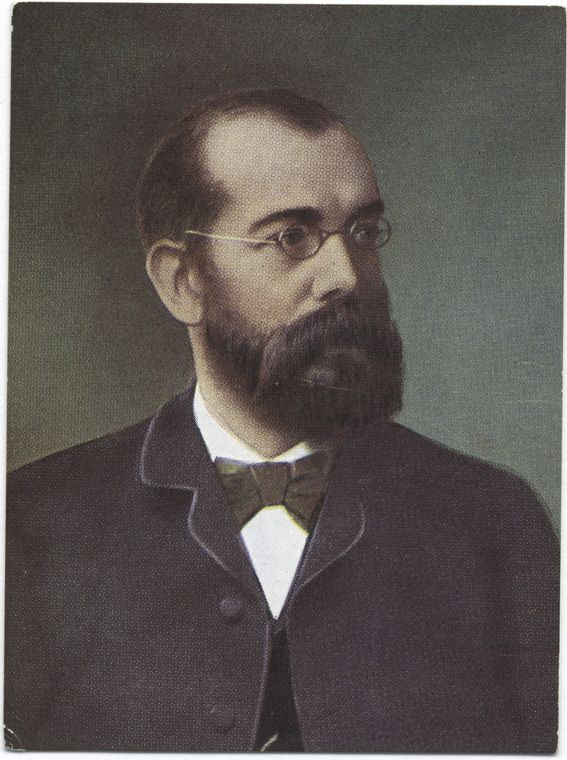By Helen Bynum
March 2013 is a busy month. For the ladies, various countries celebrate Mother’s Days and globally International Women’s Day fell on the eighth. At the end of the month Passover and Easter are special periods of celebration for two of the world’s leading religions. Easter is a major opportunity for a chocolate fest whatever you believe. To get in shape for such overindulgence, take advantage of Europe’s National Skipping Day on the 15th of March. If you prefer something more cerebral there were World Spelling, Maths, and Book Days on the fifth, sixth, and seventh. Health and medicine get a good look-in too. Purple Day (26 March) aims to raise awareness of epilepsy and encourages its participants to dress in purple, the colour of loneliness. Kidney Day (14 March) focused this year on acute injuries to these marvellous filterers of our blood. The 24th of March is World TB Day.
The first World TB Day was held in 1982 to commemorate the 100th anniversary of Robert Koch’s discovery on 24 March 1882 of the germ of tuberculosis, known today as Mycobacterium tuberculosis. On that Friday evening in Berlin, Koch read a formal research paper to a crowded medical meeting. It was published on 10 April in the Berliner Klinische Wochenschrift and after translation quickly made its way from the medical to the popular presses around the world.
Tuberculosis has been making the news ever since. We might think of the rise and almost immediate fall of Koch’s tuberculin cure. Of sanatoria built as peons to the new Internationalist architectural style, which segregated even if they couldn’t cure and were finally rendered redundant by the “miracle drugs” in the post-WWII antibiotic rush. Of BCG vaccination campaigns that gathered pace in Europe and then reached into the developing world thanks to the Scandinavians and the WHO. In recent years, in the HIV/AIDS years, the news has been dominated by the return of tuberculosis to the deprived inner-city wastelands of the developed world and its worsening effects everywhere else. Tuberculosis has gone global again: just sample the world’s press and internet news sites.
The growing problems of drug resistance have dominated the headlines, particularly the rising incidence of the worst forms of extreme drug resistance (XDR-TB). Patients infected with XDR-TB face a tortuous treatment process and the distinct possibility that treatment may fail. A study published in September 2012 highlighted the difficulties in Estonia, Latvia, Peru, the Philippines, Russia, South Africa, and Thailand where 44% of those enrolled showed resistance to at least one of what are termed the “second-line drugs.” These are much more expensive, have harsh side effects and require longer periods of treatment.

There have been positives too. The twenty-eight of December 2012 saw the USA’s Food and Drug Administration (FDA) approve bedaquiline — the first new drug against tuberculosis in more than 40 years — for use in multidrug resistant tuberculosis. Research has also indicated that vitamin D may speed the recovery of tuberculosis patients and help clear their sputum of bacteria. Ongoing research into novel vaccines or those able to augment the protection BCG offers to children has not yet yielded a usable product but has revealed vital new information about the immunological mechanisms involved. There is something to show for the US$70–100 million spent annually on research into tuberculosis vaccines.
Much more will be needed from the laboratory, better drugs and better vaccines and in the field of social welfare, alleviation of the poverty that fosters tuberculosis and the HIV/AIDS that accelerates it. History shows that tuberculosis control never mind its elimination also needs strong, committed, and comprehensive health care systems at the national level and binding agreements at the international level. 24 March 2013 will launch the second year of the World TB Day campaign that began in 2012.
Stop TB in my lifetime — what a wonderful thought.
Helen Bynum is a freelance historian of medicine and a former researcher for Wellcome. She is the author of Spitting Blood: The history of tuberculosis and Tropical Medicine in the 20th century. Together with Bill Bynum, they have edited the award winning Dictionary of Medical Biography (5 vols).
Subscribe to the OUPblog via email or RSS.
Subscribe to only science and medicine articles on the OUPblog via email or RSS.
Image Credit: (1) Robert Koch. Stephen A. Schwarzman Building / George Arents Collection. Source: NYPL.
(2) World TB Day promotional image from The Stop TB Partnership website.




Recent Comments
There are currently no comments.